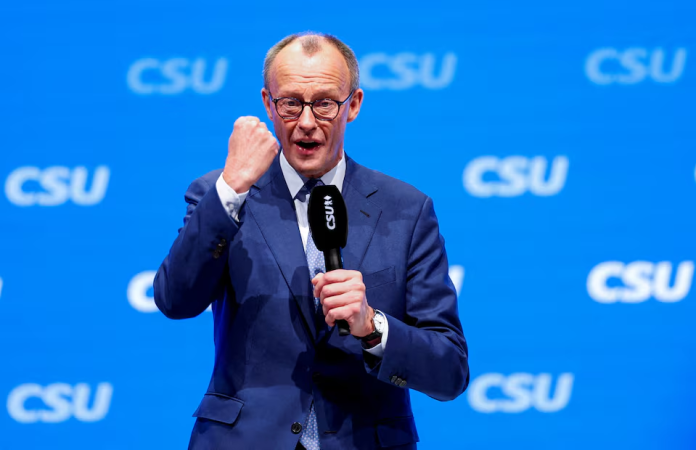Ahead of early elections in Germany on 23 February, Chancellor Olaf Scholz has not abandoned hope that his Social Democratic Party (SPD) will pull ahead and allow him to lead the next government.
However, current polling figures suggest such an outcome is unlikely.
In the 2021 Bundestag election, the SPD secured victory with 25.7% of the vote. However, according to the latest ARD DeutschlandTrend poll, the party has dropped to just 14%, down one point from the previous week.
The poll, conducted from 10 to 12 February, surveyed a representative sample of 1,579 eligible voters. It shows the conservative Christian Democratic Union (CDU) and its Bavarian sister party, the Christian Social Union (CSU), increasing their lead to 32%.
The Alternative for Germany (AfD) remains in second place at 21%, while the environmentalist Greens, currently part of the minority government with the SPD, are unchanged at 14%.
The Left Party stands at 6%, enough to secure parliamentary representation, while the newly formed Sahra Wagenknecht Alliance (BSW), which split from the Left Party in 2024, is polling at 4.5%. The figure falls short of the 5% threshold required to enter parliament, as does the Free Democratic Party (FDP), which is also at 4%.
Despite the clear lead for the CDU/CSU, a significant portion of voters remains undecided. While the number of undecided voters is lower than in the 2017 and 2021 elections, it remains substantial enough to impact the final result.
Public opinion on future government leadership
The coalition of the SPD, Greens, and FDP, which collapsed in November 2024, was the most unpopular government in German history. When asked which party should lead the next government, 35% of respondents favoured the CDU/CSU, whereas only 17% supported another SPD-led coalition. 11% expressed a preference for a government led by the AfD, and 9% backed the Greens.
The poll also revealed a lack of enthusiasm for any of the top candidates for chancellor. CDU/CSU leader Friedrich Merz led with 34% of respondents saying he would make a good chancellor, followed by incumbent SPD Chancellor Olaf Scholz at 26%, Green Party co-leader Robert Habeck at 25%, and the AfD’s Alice Weidel at 19%.
The figures represent the lowest levels of support for top candidates in any pre-election poll. In 2021, for example, 51% of voters believed Scholz would be a good chancellor just before he took office.
The most popular option among voters is a return to the CDU/CSU-SPD coalition that governed Germany under former Chancellor Angela Merkel. 16% favour a CDU/CSU-Greens coalition, a combination seen in several German states but ruled out by Bavaria’s CSU leader Markus Söder. Meanwhile, 11% support a revival of the CDU/CSU-FDP alliance, a partnership that has governed Germany in the past when the CDU/CSU was stronger.
